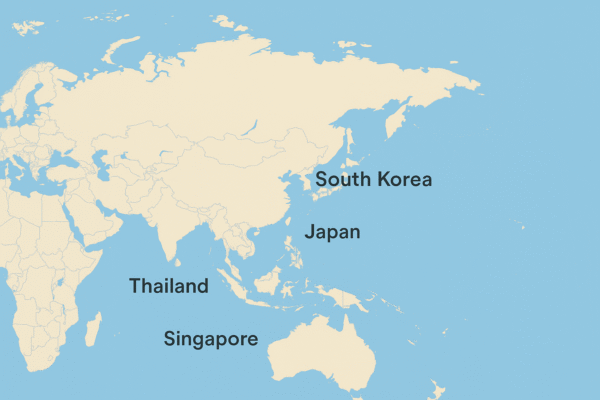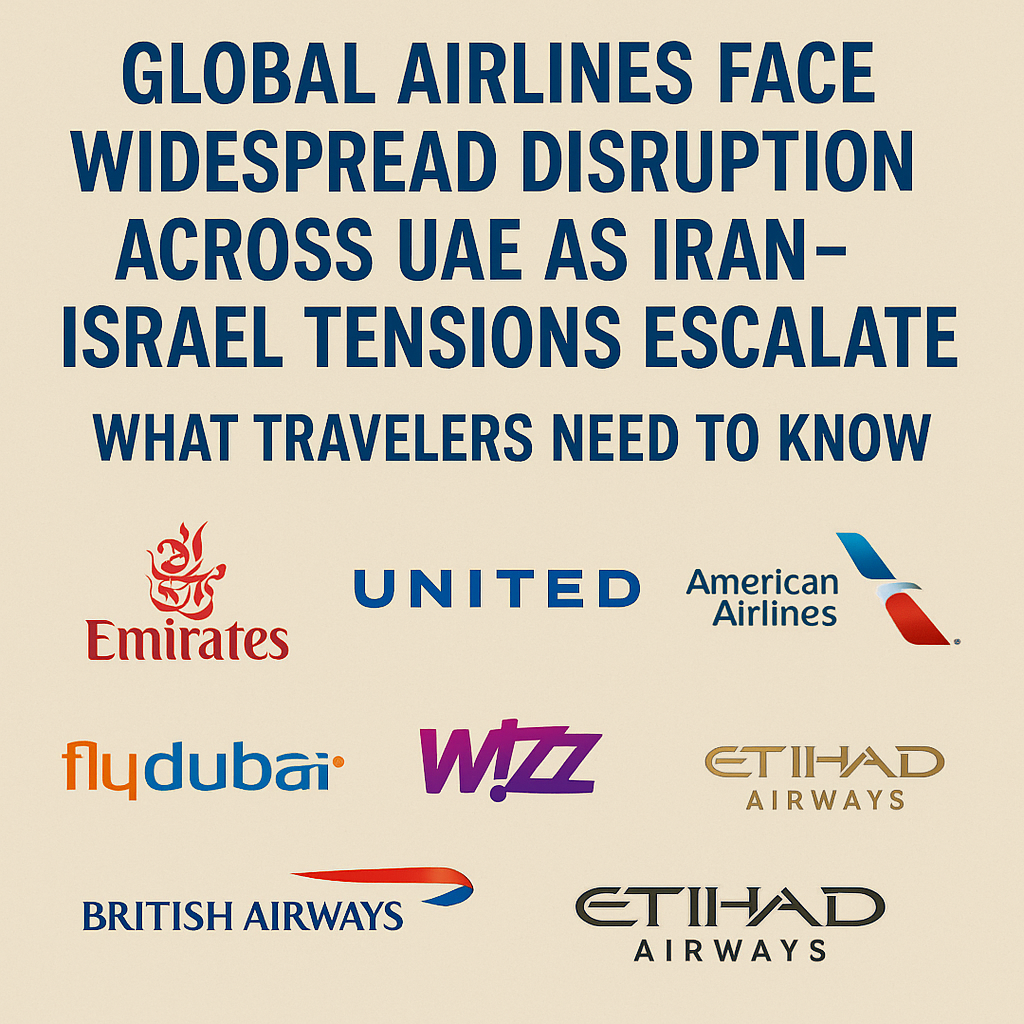DUBAI, UAE – A sweeping wave of flight disruptions has struck the United Arab Emirates, leaving major international carriers scrambling and travelers stranded amid growing instability in the Middle East. With tensions mounting between Iran and Israel, multiple regional and global airlines have suspended or rerouted flights through key Middle Eastern corridors.
Emirates, flydubai, Etihad Airways, Wizz Air, United Airlines, American Airlines, British Airways, and others have now adjusted operations in response to emerging security threats. The impact is being felt across Dubai, Abu Dhabi, and Sharjah airports—three of the busiest aviation hubs in the world.
This isn’t a temporary setback. It’s a regional air travel crisis unfolding in real time—and its ripple effects could alter summer travel patterns well into 2025.
Airspace Closures Trigger UAE Flight Cancellations
The aviation landscape over the Gulf has entered emergency mode. Airspace over parts of Iran, Iraq, Syria, and Israel has become highly restricted or temporarily closed. The result: airlines are being forced to make swift, large-scale operational changes.
Emirates has suspended flights to Amman, Beirut, Tehran, Baghdad, and Basra, with some cancellations extending through the end of June. Etihad Airways followed suit, halting services to Tel Aviv and rerouting flights to Beirut and Tokyo. Dubai-based low-cost carrier flydubai and Sharjah-based Air Arabia have taken similar action.
These measures have upended travel plans for thousands, as airlines pivot away from air routes once considered dependable.
Wizz Air, United, and Global Carriers Join the Pullback
Even budget and transatlantic carriers are taking no chances. Hungary’s Wizz Air has suspended services to Tel Aviv and Amman until mid-September. United Airlines has paused flights to Dubai, citing safety concerns, while British Airways, Finnair, and Air France-KLM have either suspended routes or rerouted operations through safer corridors.
The scale of disruption is unprecedented in recent years. Travelers from Europe, North America, and Asia—many of whom planned summer transits through UAE airports—now face reroutes, extended layovers, and even full cancellations.
Stranded Travelers, Scrambling Airlines
The sudden onset of disruption has sparked confusion among travelers and overwhelmed airlines’ customer service teams. Families planning Eid holidays, tourists heading to Europe, and business travelers en route to Asia have all been impacted.
At Dubai International Airport (DXB), passengers faced long queues and unclear information. Refund requests, rebookings, and itinerary overhauls are stretching airline support resources.
Many travelers, unaware of the rapidly changing geopolitical dynamics, found themselves caught off guard. While airlines are providing rebooking options, updated advisories, and in some cases refunds, the pace of change is dizzying.
Tourism and Business Travel in the Gulf Take a Hit
The disruption arrives at the worst possible moment—just as the summer peak travel season begins. Dubai, Abu Dhabi, and Sharjah had anticipated record tourism numbers for July and August 2025.
According to the UAE’s Department of Economy and Tourism, inbound arrivals were forecast to exceed 2019 levels this summer. That outlook is now in flux. Tour operators report a surge in cancellations, especially from North American and European markets.
In addition, business travel—a key driver of demand for UAE’s premium airline services—is facing delays, rerouting, and event postponements.
How Long Will This Last?
No end is in sight. Regional security experts caution that any escalation between Iran and Israel could result in prolonged airspace disruptions. Aviation bodies, including ICAO and IATA, are monitoring the situation, but air traffic over parts of the Middle East will remain volatile in the near future.
Authorities at Dubai Airports and Abu Dhabi Airports Company have confirmed enhanced safety measures, including increased security screening and coordination with international aviation regulators.
Until tensions ease, airlines are likely to maintain emergency protocols and route modifications, placing continued pressure on regional travel.
What Should Travelers Do?
If you’re flying to or from the Middle East—especially the UAE—in the next few weeks, check your airline’s travel alerts frequently. Here’s what to keep in mind:
- Do not go to the airport without checking your flight status. Cancellations are ongoing and real-time.
- Wait for airline cancellations. If the airline cancels your flight, you’re entitled to better compensation, including full refunds or travel credits.
- Contact airlines early. Rebooking options become limited as cancellations increase.
- Stay flexible. Consider alternative travel routes through safer hubs like Istanbul or Athens.
Aviation Industry Faces Strategic Reassessment
Airspace volatility is reshaping airline logistics, route planning, and long-term fleet strategy. Carriers may now delay route expansions through the Gulf or look for alternate European and Central Asian hubs.
The financial implications are severe. Longer flight paths mean increased fuel costs, added crew expenses, and lower operational efficiency. Some routes could become unviable if conflict conditions persist.
Moreover, the situation serves as a stark reminder of the importance of risk modeling in airline route management—especially through geopolitically sensitive regions.
Final Word: A Defining Moment for Middle East Travel
The latest wave of cancellations and airspace closures reflects a larger truth: global aviation is deeply intertwined with geopolitical stability. What happens in one region has the power to disrupt air travel across continents.
For travelers, this summer will be one of uncertainty. For airlines and airports, it’s a trial of crisis management, agility, and safety assurance.
As the skies over the Middle East continue to shift, one thing is clear: planning a trip to or through the UAE in summer 2025 now requires more than a passport and a boarding pass—it demands awareness, patience, and a flexible itinerary.
For more travel news like this, keep reading Global Travel Wire

















